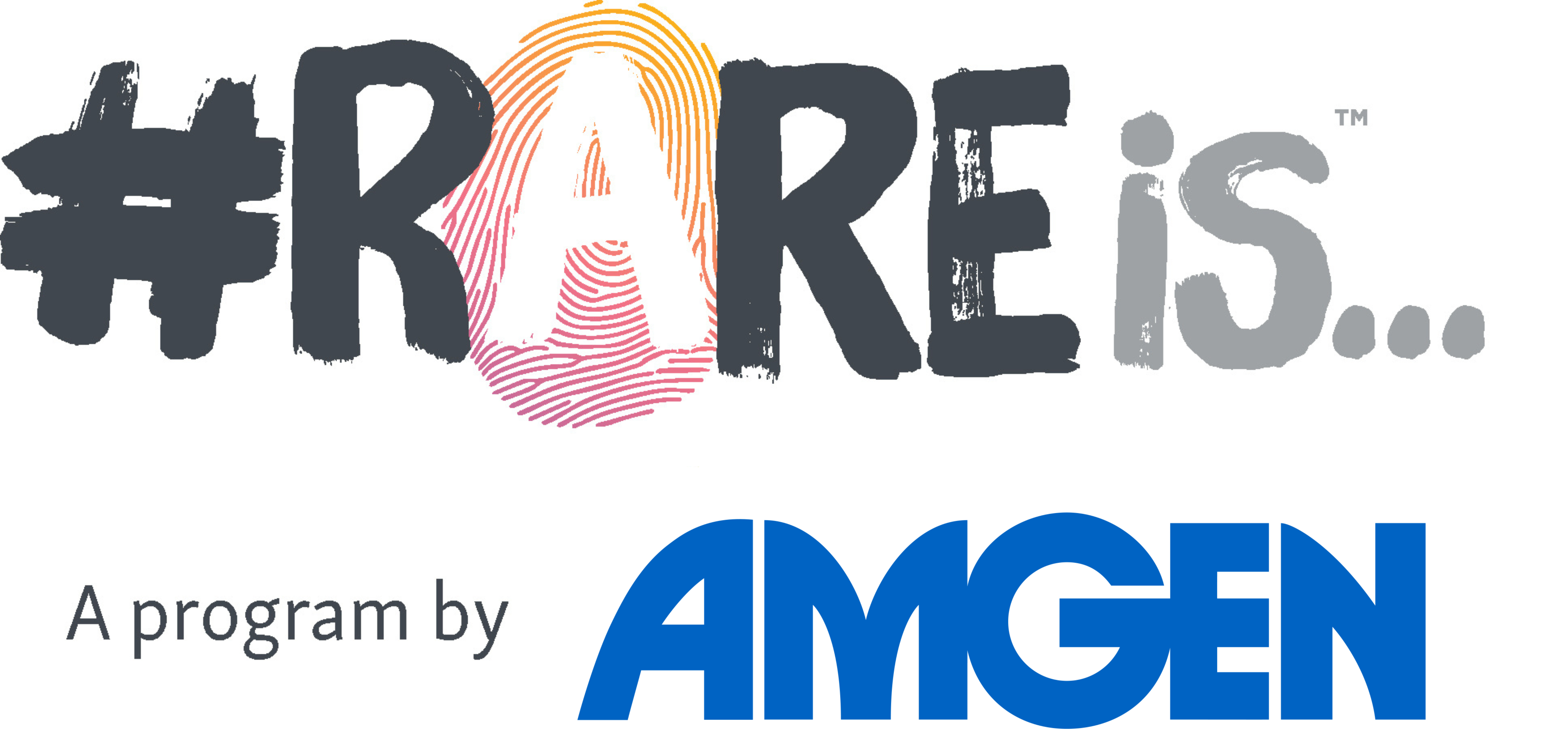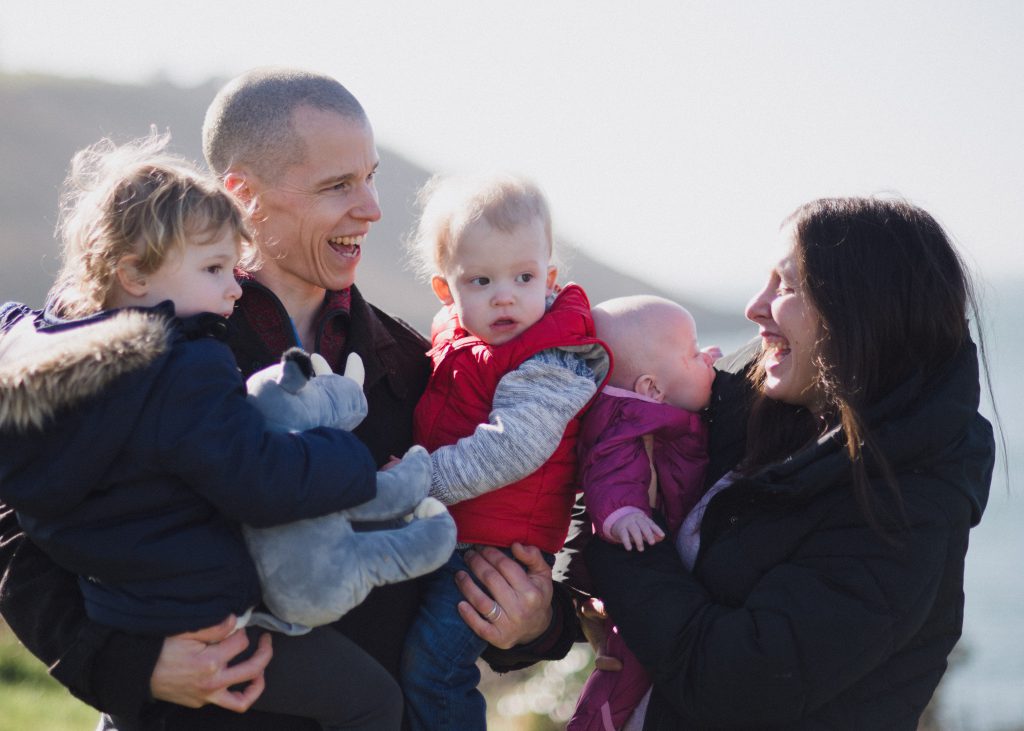An Unexpected Journey with Rare Disease
My name is Becky Tilley, and I live in the United Kingdom. I am married to my wonderful husband, Carl, and we have three children: Isabella (Bella, 3), Joshua (2) and Avary (1). Myself, Joshua and Avary share a rare chromosome disorder called Koolen-de Vries Syndrome (KdVS). My son and I received our joint diagnosis 14 months after his birth, and at the time, I was four months pregnant with my third precious child, Avary. My geneticist informed me that while my firstborn, Bella, was considered neurotypical, there was a 50% chance Avary would also inherit KdVS. Her diagnosis was later confirmed in 2022, and after my husband and I officially received the news, we were able to process and accept it much quicker than when we first received the diagnosis for Josh.
I was left reeling with guilt knowing Josh had to stay 34 days in the neonatal intensive care unit (NICU) after birth, was diagnosed with hypotonia and spent a year giving various blood tests to find the cause, and all along, it was the syndrome I passed on. My husband on the other hand, immediately felt like he understood me better as my geneticist informed us that KdVS was most likely the cause of my learning difficulties during my school years.
Our Rare and Unconditional Love
Hearing this was like a light bulb moment for Carl as I am not practically minded at all. I become easily overwhelmed when completing simple tasks like taking care of the house and getting myself and the family organised, which means I take longer to get things done than most. He once found this extremely frustrating and still does to a degree but appreciates the effort I make to manage it and improve and better myself. Knowing I have a KdVS diagnosis, combined with my upbringing, has helped provide him with a good understanding of me and how I operate that he never had before. This helps him have more grace and acceptance, both for me and the daily frustrations I create. Not only that, but it also helps him to understand our children better, and the kind of challenges they will encounter as they grow.
He has a very deep love and affection for all four of us as his family and loves and values us all as we are. I truly believe that with understanding comes acceptance, and in our own personal ways, we have both come to terms with being a rare disorder family. Having lived with KdVS my whole life and being in a relationship for so many years together (married since 2009), we have felt less in the dark as a result about what KdVS looks like. It has manifested itself uniquely in both myself and our two youngest children. Knowing, however, I was first to have it has given me a lot of purpose and passion to be a role model to my children of what great things are possible when living with a rare disease diagnosis. My husband is supportive of the approach I have taken and how I use it to advocate through sharing our journey with the world as a source of hope and encouragement to many other rare families. He has also responded with acceptance and love and doesn’t see Josh and Avary through the lens of KdVS. He understands it is a part of them, but first and foremost he sees, knows and loves them just as his kids without defining them by their disorder in any way. What he focuses on is being the best dad he can be to all three of his wonderful children.
We share the same view in that as I also choose to look beyond our children’s diagnosis: to love and celebrate them as the uniquely wonderful, playful, affectionate and joyful children they are. I also make sure that I acknowledge KdVS as being a part of them which requires some extra time, patience, care, support and understanding, which I give gladly. It is important to us both that our children receive all they need both from us, and the relevant therapists and other professionals required along their journey who can help assist them in reaching their own fullest potential. We don’t see KdVS as something that takes away from who they are, but instead, what adds a special something to show the world the beauty of being different. Nobody knows exactly what the future holds, so what we rely on is love for ourselves, one another, and our children to be our courage and strength to face whatever challenges lay ahead.
A Strong Support System
Not only that, but we are blessed with amazing support from our friends and family who have been there for us, no matter what the challenge from day one of our journey. All of them share the same view we do and know that our kids are so much more than their diagnosis and they love, enjoy and celebrate all three of our kids as they are, for who they are. They make our kids feel loved and appreciated whenever they spend time together and join Carl and I in celebrating their progress and all of the joy they are to be with. Not only that, but they have also encouraged and loved me on our rare and unexpected path, just as I am. The same goes with my husband, my beautiful mum-in-law, sister, and God mama to my three kids; they all have a better understanding of what makes me who I am as a woman and as a mama. They see the effort I put in to better myself and my life, and I know that I have their full love and support, as do my children, through the best and the worst of times. They respect how I have used our family’s diagnosis for the better and how I seek to help us thrive as a family while also offering hope and support to many other families on a similar journey. I share my journey as a writer and advocate in the rare disease community, and they continue to cheer me on every step of the way as I celebrate my journey and achievements with them. I am very open with family and friends about our journey as a family with KdVS, and as a result, I believe I have found the ones who are truly meant to walk this path with us.
Family means everything to both me and Carl, and for this reason and more, we never take the gift of our three beautiful children for granted. No matter what challenges we face we both work hard individually, and as a couple to keep us all thriving and moving forward as a family, and I know we will continue to.
My Parting Words
What I would like other rare families to take away is that it is possible for those living with rare diseases to thrive as an individual. Not only that, but to create meaningful, lasting, and fulfilling relationships with a partner, family, and friends as who they uniquely are. Let’s encourage our children to dare to let themselves be seen and known for all of what makes them, them. Only in doing so it becomes possible for them to find the love, acceptance, relationships and connections they long for the most.
To follow our family journey, as well as to find a support group for KdVS, check out my website, LinkedIn and Facebook pages below:
- Website: https://koolenmama.wordpress.com/
- LinkedIn: Becky (Koolen Mama) Tilley
- Instagram: koolen.mama
- Facebook:

